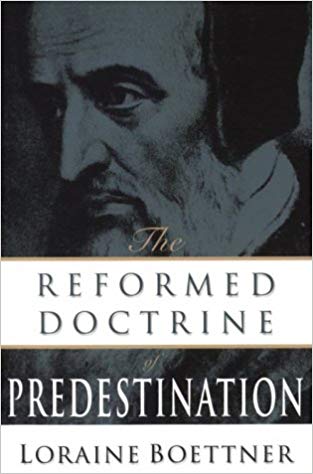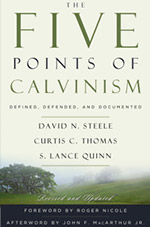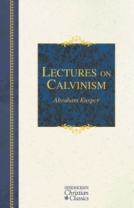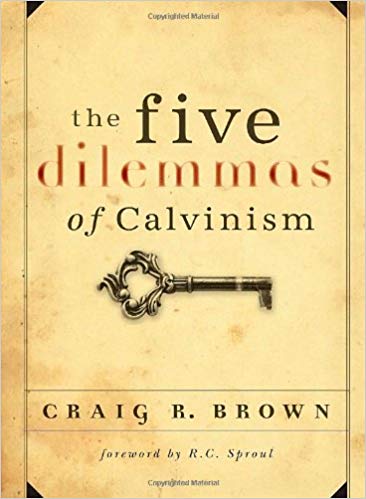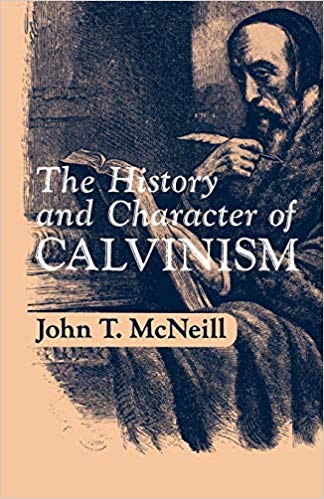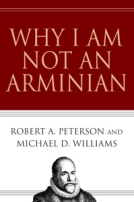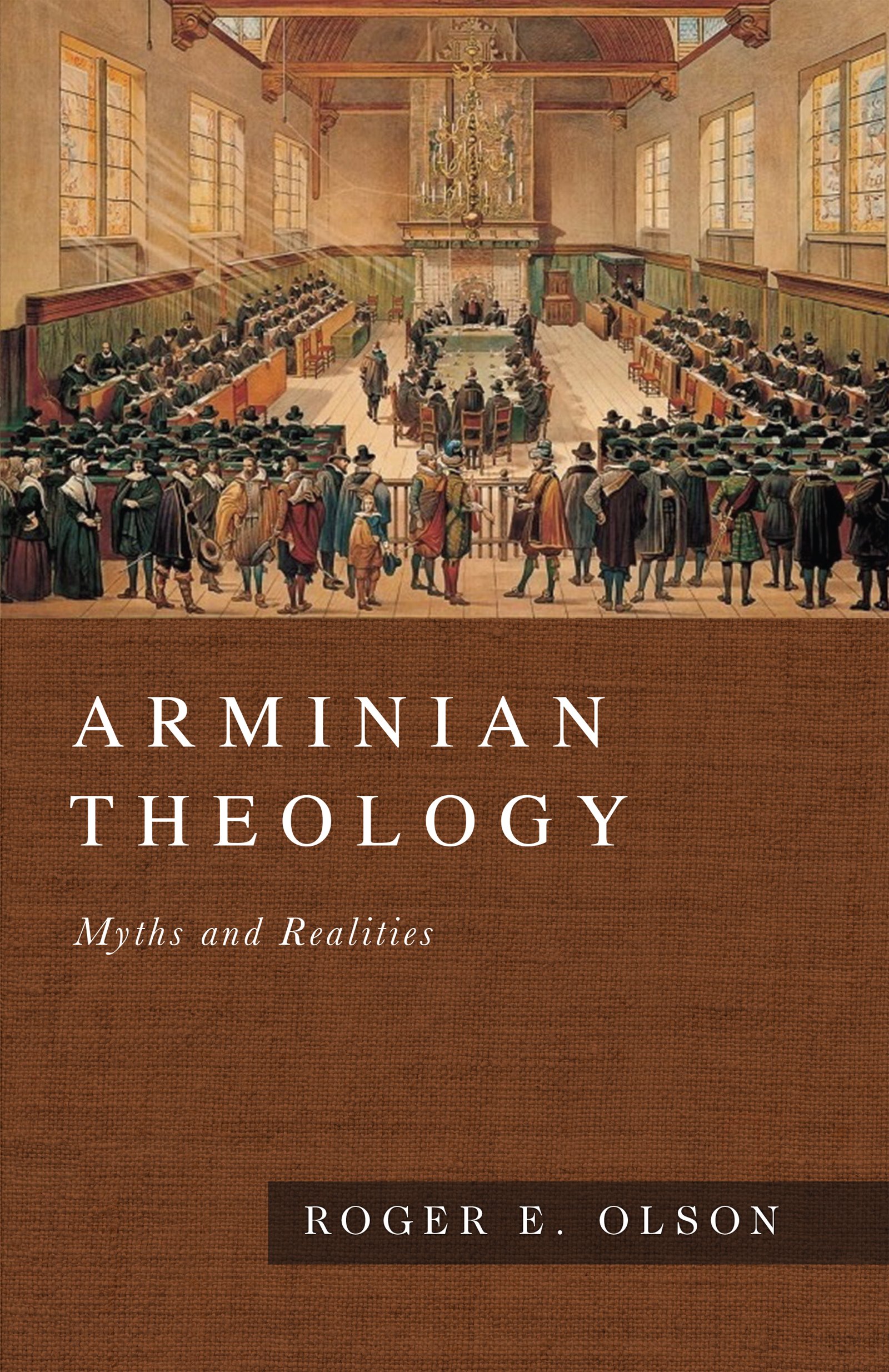We now proceed to analyze the four arguments for prevenient grace advanced by Wesleyans. I will argue that their case is unpersuasive and that their doctrine of prevenient grace is not found in Scripture. Wesleyans, however, advance some exegetical and theological arguments in defense of prevenient grace that will be considered here.
We turn first of all to John 1:9. The crucial phrase for our purposes is photizei panta anthropon (enlightens every person), which enlightening is ascribed to ”the true light.” Wesleyans understand this enlightenment to refer to prevenient grace, which is given to all people, but there are serious reasons for doubting that this is the meaning of the verse. In fact, the verse can be understood in three other ways that do not yield the Wesleyan interpretation. First, the illumination could refer to general revelation, which is granted to all people through the created order.[42] This shifts the debate to different ground, for some argue that general revelation is sufficient for salvation.[43] Such a view is unpersuasive given Paul’s estimation of general revelation in Romans l:18-32.[44] In any case, D. A. Carson is correct in dismissing a reference to general revelation since this would have been more appropriately dealt with earlier in the prologue (i.e., John l:3-4).[45] The specific context is not general revelation but the response of people to the incarnate Word of God, Jesus Christ.
Second, the illumination may refer to an inward illumination that leads to conversion.[46] In this case, John would not be saying that illumination is given to all people ”without exception” but to all ”without distinction.”[47] The light is not confined to the Jews, but also has an effect among the Gentiles. Other sheep that are not of the fold of the Jews will be brought in (John 10:16). Jesus died not only for the Jews but also for the children of God scattered throughout the world (John 11:51-52).
The context of John 1:9-13, however, suggests that another interpretation is the most probable.[48] The word enlighten (pbotizo) refers not to inward illumination but to the exposure that comes when light is shed upon something. Some are shown to be evil because they did not know or receive Jesus (John 1:10-11), while others are revealed to be righteous because they have received Jesus and have been born of God (John 1:12-13). John 3:19-21 confirms this interpretation. Those who are evil shrink from corning to the light because they do not want their works to be exposed (v. 20). But those who practice the truth gladly come to the light so that it might be manifest that their works are wrought in God (v. 21). The light that enlightens every person does not entail the bestowment of grace, nor does it refer to the inward illumination of the heart by the Spirit of God. Rather, the light exposes and reveals the moral and spiritual state of one’s heart. C. K. Barrett rightly says that ”the light shines upon every man for judgement, to reveal what he is.”[49] Or, as Carson remarks, ”Inner illumination is then not in view” but ”the objective revelation” that occurs at the coming of the ”true light.”[50] John 1:9 is not, therefore, suggesting that through Christ’s coming each person is given the ability to choose salvation. The purpose of the verse is to say that the coming of the true light exposes and reveals where people are in their relationship to God.[51]
Wesleyans appeal to grace given in the atonement and Christ’s death for all as an indication of prevenient grace. I shall not examine the question of the extent of the atonement since that is treated elsewhere in this work.[52] Indeed, Calvinists have typically seen grace as bestowed upon the elect in the atonement, but in this case the grace bestowed is effective and guarantees salvation. The question is whether in the atonement of Christ the Wesleyan conception of prevenient grace is taught; that is, does Scripture teach that people are given the ability to choose or to reject God by virtue of the atonement? Doubtless grace is manifested in the atonement. For instance, Titus 2:11 says that ”the grace of God that brings salvation has appeared to all men.” Calvinists usually argue that this text teaches that the atonement secures and accomplishes redemption for the elect. It is not my purpose to defend or refute that interpretation. Even if the text were suggesting that salvation is potentially available for all people (cf. 1 Tim. 4:10), that is a far cry from saying that through the atonement God has counteracted the effects of Adam’s sin so that all people have the opportunity to accept or reject him. Titus 2:11 says that God’s grace has been manifested through Christ’s work on the cross, but it does not say that God has thereby supplied the ability to believe to all people. Wesleyans conclude from the atonement effected by Christ that enough grace has been imparted to all people so that they can now choose whether or not to believe. But it is precisely this point that is not taught explicitly in the verse. It does not necessarily follow that since grace was manifested in the death of Christ that all people as a result have the ability to believe in him. Specific exegetical support for this conclusion is lacking.
A text that might lead to the Wesleyan conclusion is John 12:32. But this involves a misreading of the text. In John 6:37 Jesus says, ”All that the Father gives me will come to me, and whoever comes to me I will never drive away.” Note that this text specifically teaches that only some will come to Jesus, namely, those who have been given by the Father to the Son. In other words, the Father has not given all to the Son; he has selected only some, and it is they who will come to the Son and believe in him (cf. John 6:35).[53] The teaching of John 6:37 is reaffirmed in 6:44. ”No one can come to me unless the Father who sent me draws him, and I will raise him at the last day.” The word draw (helkuo), which is used in John 12:32, is also used in John 6:37. The point of John 6:44 is that the Father does not draw all people, only some. Carson rightly remarks, ”The combination of v[erse] 37a and v[erse] 44 prove that this ’drawing’ activity of the Father cannot be reduced to what theologians sometimes call ’prevement grace’ dispensed to every individual, for this ’drawing’ is selective, or else the negative note of v[erse] 44 is meaningless.”[54] The Johannine conception of drawing is not that it makes salvation possible, but that it makes salvation effectual. Those who are drawn will come to Jesus and believe in him.
Does this definition of drawing mean that John teaches universahsm, since 12:32 says that Jesus will draw all to himself by virtue of the cross? The context of John 12:20-33 helps us answer that question. Greeks, that is, Gentiles, approached Philip because they wanted to see Jesus (vv. 20-23). Jesus ignores the request and instead speaks of the need for a gram of wheat to die in order to bear fruit (vv. 24-26), and of his commitment to carry out his commission (vv. 27-28). Jesus’ death is the means by which God’s judgment of the world and his triumph over Satan will be accomplished (v. 31). He concludes by saying that if he is lifted up he will draw all people to himself (v. 32).
The context is of paramount importance for understanding John 12:32. Jesus appears to ignore the request from his disciples to meet with the Greeks who wanted to see him. But the point Jesus makes is that the only way Gentiles will come to him is through his death. He must die in order to bear much fruit and bring Gentiles to himself. The power of Satan as the ruler of the world will be broken only by the cross. Thus, when Jesus speaks of drawing all people to himself by virtue of the cross, the issue in the context is how Gentiles can come to Jesus. The drawing of all does not refer to all people individually but the means by which Gentiles will be included in the people of God. Carson again rightly interprets the verse. ”Here ’all men’ reminds the reader of what triggered these statements, [namely,] the arrival of the Greeks, and means ’all people without distinction, Jews and Gentiles alike’, not all individuals without exception.”[55] The Wesleyan theory that prevement grace is provided in the atonement so that people are given ability to choose salvation cannot be supported from the context of John 12.
The third Wesleyan argument for prevement grace is probably the most powerful one. Why would God give commands unless people were given some ability to obey them? Romans 2:4 says that his kindness is intended to lead people to repentance. Does this not imply that people have the ability to repent if they would only choose to do so?
It should be acknowledged that Wesleyan logic is coherent here, and one can see why Wesleyans would deduce human ability from the giving of cornmands. Nonetheless, even though their logic is impeccable, it does not necessarily follow that their conclusion is true. An argument may be logically co-herent and not fit with the state of affairs in the world because the answer given is not comprehensive. To put it another way, one of the premises in the Wesleyan argument is not in accord with the reality of life as it is portrayed in the Scriptures. They are incorrect in deducing that God would not give commands without giving the moral ability to obey them. The distinction between physical and moral ability is crucial.[56] For instance, human beings are physically able (in most cases) to walk up steps, but they are physically unable to jump over houses. In a similar way, God gives commands to unbelievers that they can physically obey; that is, they could observe his commandments if they desired to do so. Unbelievers are morally unable to keep God’s cornmands in the sense that they have no desire to obey all of his commandments. God commands all people (Gal. 3:10; Rom. 1:18-3:20) to obey his law perfectly, but no one is morally able to do this. Because all people are born with a sin nature inherited from Adam, they will inevitably sin. Even though people cannot morally obey God’s commands, biblical authors assume that they should keep his commandments. They should keep his commandments because they are right and good (Rom. 7:12) and are not physically impossible to keep. People could observe the commandments if they wanted to do so. The biblical view, however, is that unbelievers as slaves of sin have no desire to keep God’s law.[57]
The state of affairs that obtains under the law remains when Christ comes. That is, all people should come to Jesus in order to have life (John 5:40). Jesus upbraids those who do not believe despite all his works (Matt. 11:20-24), and he invites all to come to him (Matt. 11:28-30). Yet he also teaches that no one can come to him unless drawn by the Father (John 6:44), and only those to whom the Father and Son reveal themselves will come to know him (Matt. 11:25-27). All people are summoned to believe in Jesus and are censured for not believing. Nonetheless, the Scriptures also teach that they have no moral ability to believe, and that the only way they will believe is if they are given by the Father to the Son. This revelation is not vouchsafed to all people but only to the elect. Jesus commands believers to be perfect (Matt. 5:48), but the need for forgiveness (Matt. 6:14-15) demonstrates that perfection is impossible to attain.
The problem with Wesleyamsm at this point is that it is guided by human logic and rationality rather than the Scriptures. Their view that commands would not be given that people could not morally obey is certainly attractive. But our counterargument is that such a notion is not taught in the Scriptures. The doctrine of original sin and human inability is an offense to reason.[58] This is not to say that it is irrational. The distinction between physical and moral ability goes a long way toward resolving the difficulties. Nonetheless, not all the difficulties are resolved by the Calvmist view, for ultimately we do not fully understand how people can be responsible for sin when they are born with an inclination that will inevitably lead them to sin.
An example from another area of life might help. Robert Wright in an article on alcoholism was musing on the theory that it might be determined by one’s genes.[59] If so, could we conclude that people are not responsible for alcoholism? Wright correctly says no. If we draw this conclusion, then the reality of human responsibility will be slowly whittled away as we discover the impact of genetics on human behavior. Even if alcoholism is determined genetically, people are still responsible for their behavior.[60] We may not fully understand how both determinism and human responsibility can be true, but both are necessary to account for the nature of humanity and genetic research. So too, sinners who have inherited a sin nature from Adam and who have no moral ability to obey God’s law and no inclination to respond to him are still responsible for their failure to respond to God’s grace.
The preceding comments prepare us for understanding Romans 2:4. The wording of this text should be taken seriously, but our own philosophical presuppositions should not be read into it. It is the case that the kindness of God should lead people to repentance.[61] God’s kindness is not a charade but is profoundly present in that he spares people and does not immediately destroy them for their sin. The kindness and patience of God should induce people to seek him and to confess their sin. But this text does not say that people have the moral ability to repent and turn to God. It simply says that they should repent and turn to him. Wesleyans read into this verse their theology of prevenient grace, thereby squeezing more out of the verse than it says.[62]
What we have said about Romans 2:4 leads us naturally to the fourth argument used for prevenient grace, that is, the justice, wisdom, mercy, and love of God. What I have been arguing is that the fundamental problem with the Wesleyan understanding of prevenient grace is that it is not taught in the Scriptures. It is a philosophical imposition of a certain world view upon the Scriptures. This world view is attractive because it neatly solves, to some extent, issues such as the problem of evil and why human beings are held responsible for sin. But the Scriptures do not yield such neat solutions.[63] God is wholly just in condemning sinners who have no ability to obey his law (Rom. 8:7-8). They fail to keep the law because they do not want to obey it. In sinning they carry out the desires of their hearts. God is merciful and loving in not destroying them immediately and offering them salvation. It is a mistake, however, to say that God’s love and mercy will provide every person an equal chance to believe. God would be just in sending all to hell since all have sinned. The love and mercy extended to the elect is undeserved. God is obligated to save no one, but out of a heart of mercy he saves some (Eph. 2:4-7). Those who believe that God must extend mercy equally to all are subtly falling into the trap of believing that God would not be good without showing mercy equally to all. This comes perilously close to the conclusion that God should show mercy to all to the same extent, and that such mercy is obligatory. But if God should show equal mercy to all, then mercy is no longer viewed as undeserved. In this view mercy extended to all is demanded by justice. This kind of reasoning should be rejected because the Scriptures make it clear that no one deserves to be saved, that all people could be justly sent to hell, and that God’s mercy is so stunning because it is undeserved
The scandal of the Calvinist system is that ultimately the logical problems posed cannot be fully resolved. The final resolution of the problem of human responsibility and divine justice is beyond our rational capacity. The doctrine of prevenient grace in the Wesleyan sense is read into the Scriptures because it solves so many logical problems and attempts to clarify how God is just and loving. Calvinists also affirm God’s mercy, wisdom, justice, and love. We trust that he is good, and that no one will perish who does not deserve judgment. There is significant evidence to vindicate the justice, mercy, and love of God. Nonetheless, we cannot comprehensively explain how these attributes of God fit the reality portrayed in the Scriptures. There are finally some mysteries that we cannot unravel.


